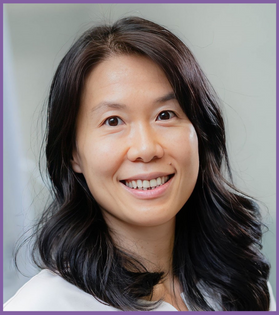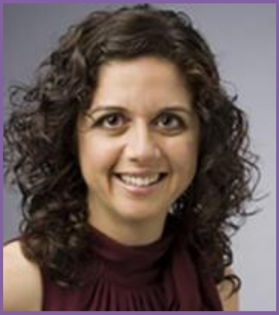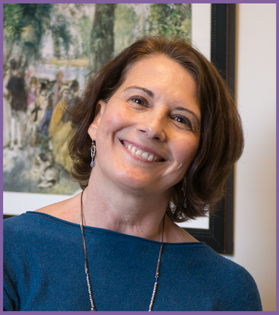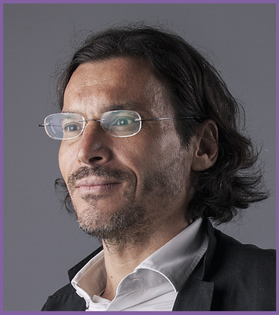Fellows
The nominations process takes place from September – October each calendar year.
Fellows of the Cognitive Science Society are individuals whose research has exhibited sustained excellence and had sustained impact on the Cognitive Science community. A Fellow’s research is typically inter-disciplinary but may be disciplinary research with significant impact on Cognitive Science. Fellows often participate significantly in the Cognitive Science community but not necessarily. Fellows are recognized for their professional integrity. All other factors being equal, the Fellows election process attempts to balance diversity in gender, geographical region of the world, and intellectual area.
Congratulations to the new fellows of 2023

Francesco d'Errico
University of Bordeaux & University Bergen
Bio coming soon!

Russell Gray
University of Auckland
Bio coming soon!

Janet Hsiao
University of Hong Kong
Dr. Janet Hsiao is Head and Associate Professor in Department of Psychology, a PI of State Key Laboratory of Brain and Cognitive Sciences, and a Steering Committee member of Institute of Data Science at University of Hong Kong. She received her Ph.D. from University of Edinburgh and was a postdoctoral researcher at UC San Diego. She is best known for her research on learning and visual cognition using interdisciplinary approaches. She received Best Language Modelling Paper Prize from the Cognitive Science Society, and serves on the Governing Board of the Society. She is also Editor-in-Chief of British Journal of Psychology.

Tamar Kushnir
Duke University
Tamar Kushnir is a Professor in the Department of Psychology & Neuroscience and Affiliate Professor of Philosophy at Duke University. Her lab examines learning and conceptual change in young children with a focus on learning about the mind, the self, and the social world. Research topics include rational social and causal learning, developmental origins of our beliefs in free will and agency, normative reasoning, cultural influences on social and moral learning, belief revision and epistemic trust, and the role of imagination in social cognition.

Danielle S. McNamara
Arizona State University
Danielle S. McNamara, Ph.D., is a Professor of Psychology and Executive Director of the Learning Engineering Institute at Arizona State University. She is an expert in the fields of cognitive and learning sciences, comprehension, writing, text and learning analytics, computational linguistics, and intelligent tutoring systems. Her research involves the development and assessment of natural language processing tools (e.g., Coh-Metrix), game-based intelligent tutoring systems (e.g., iSTART, Writing Pal; see soletlab.asu.edu), and the development of large-scale digital learning platforms (e.g., ASU Learning@Scale). She is the founding Editor of APA Technology, Mind, & Behavior, and has produced over 500 scholarly writings.

Marco Zorzi
Università di Padova
Marco Zorzi investigates the computational bases of cognition, from development to skilled performance and to breakdowns of processing in atypical development or after brain damage. His research combines computational modeling based on neural networks, behavioral methods, neuropsychology, and neuroimaging. His interests include numerical cognition, reading and dyslexia, spatial representations and attention. In recent years he pioneered the use of unsupervised deep learning for computational modeling in a cognitive science perspective. Zorzi received doctoral and postdoctoral training in Italy (Trieste, Padova) and UK (UCL). He is a Professor at the University of Padova, where he teaches Artificial Intelligence and Cognitive Psychology.

Chen Yu
University of Texas at Austin
Bio coming soon!
Lifetime Members
The Cognitive Science Society recognizes the following individuals as Honorary Lifetime Members for outstanding, sustained contributions to the general advancement of cognitive science, and in particular, to the Cognitive Science Society.
Richard Atkinson
Rick Cooper
Susan Chipman
Lawrence Erlbaum
Kevin Gluck
Robert Glushko
Wayne Gray
Deborah Gruber
Art Markman
Susan Trickett
Jessica Wong
Fellow Nominations (closed)
Cognitive Science Society Fellows nominations 2021
Open: October 5th – November 1st 2021
The Cognitive Science Society invites nominations for Fellows of the Society. This honor recognizes individuals who have made outstanding contributions to Cognitive Science.
Nominations are due by Monday, November 1st, 2021
Qualifications
The criteria for being a Fellow of the Society are as follows. Nominators should aim to address each in their letters of nomination.
(1) A Fellow’s research should exhibit sustained excellence.
(2) A Fellow’s research should exhibit sustained impact on the Cognitive Science community.
(3) Fellows are expected to uphold commonly held standards of professional ethics and scientific integrity.
(4) Ideally, a Fellow’s research should be inter-disciplinary, but disciplinary research having a sustained impact on Cognitive Science is appropriate.
(5) Ideally, a Fellow should be a member of Cognitive Science Society with regular participation in the community via publications, attendance, or mentorship.
Other factors being equal, the Fellows election process attempts to balance diversity in gender, traditionally under-represented minorities, geographical region, and disciplinary expertise. Unusually high levels of service are not sufficient for becoming a Fellow. Fellow status is intended to be a lifetime honor; CSS reserves the right to rescind in exceptional cases where commonly held standards of professional ethics and scientific integrity have been violated. New fellows will be invited to publish a paper on their research in topICS.
A list of current Fellows is available below.
To nominate an individual, please submit the following:
- A single-spaced 1- or 2-page description of why the candidate merits selection as a Fellow with respect to the above criteria. The nominating individual(s) should be specific in documenting the sustained excellence and impact of the candidate’s research, including influential papers, citation counts, and other relevant measures.
- A curriculum vitae for the candidate and for all nominating individuals.
- Pointers to one or more web sites or other sources that provide information about the candidate, if available.
Nominations should be submitted via email to the Society at: cendrine@podiumconferences.com
![]()
The Cognitive Science Society is pleased to announce the establishment of the CogSci Grove which aims to mobilise cognitive scientists to offset carbon emissions associated with their professional activities.
society secretariat
Podium Conference & Association Specialists
#124-4730 University Way NE 104
Seattle, WA 98105
email: info@cognitivesciencesociety.org
phone: 1-800-472-7644